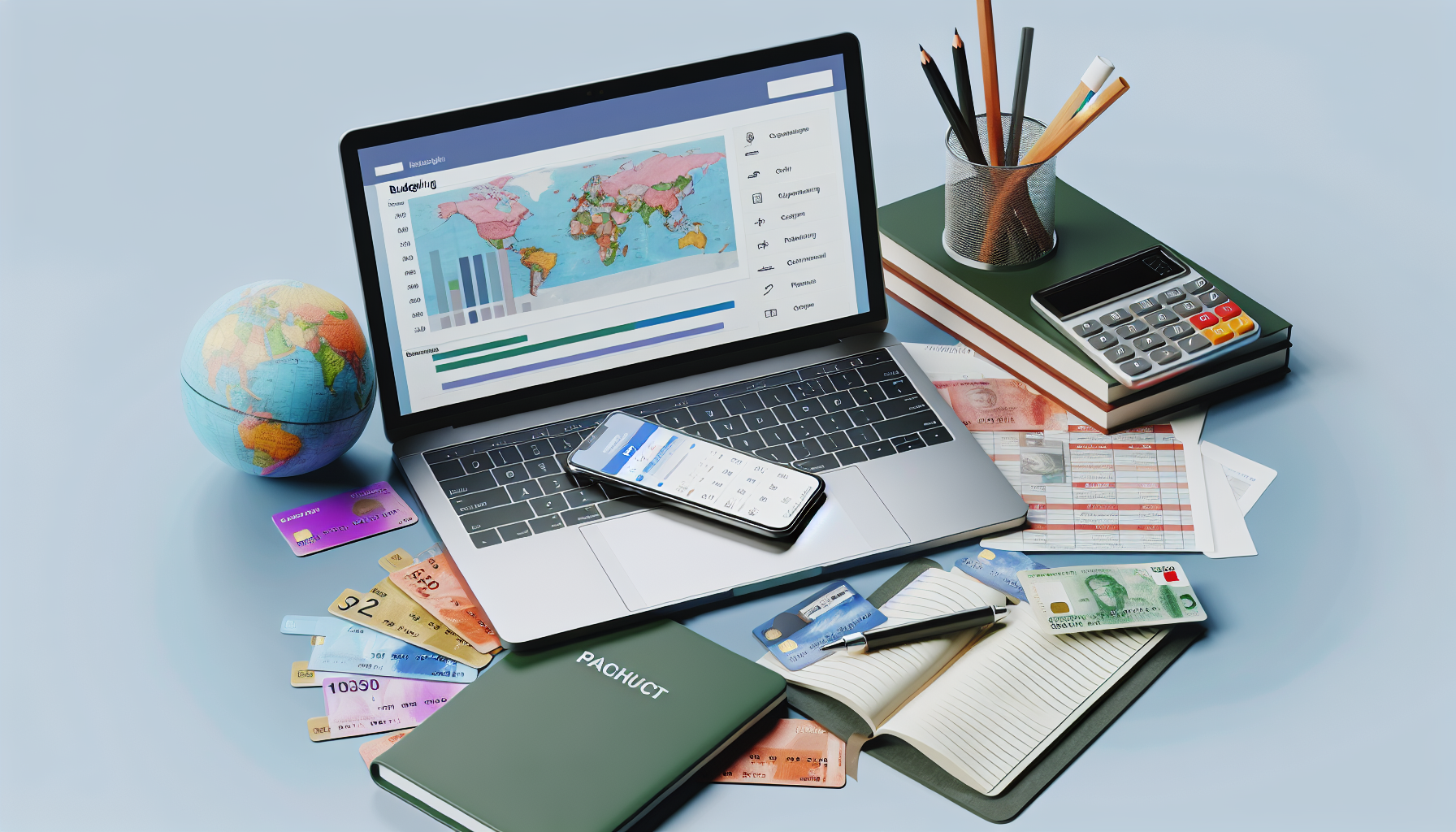Navigating the world as a digital nomad brings with it a thrilling sense of freedom and adventure. But amidst the exotic backdrops and bustling coworking spaces, managing finances can quickly become a dicey task. Staying on top of your money is crucial for a sustainable nomadic life, and keeping those finances organized can feel like a superpower. Let’s dive into some essential strategies to help digital nomads keep financial chaos at bay.
Key Takeaways:
- Set up a reliable system for easy access to international banking.
- Use budgeting tools tailored to nomadic lifestyles.
- Keep track of tax responsibilities across different countries.
- Understand and manage variances in living costs.
- Regularly review and adjust your financial strategies.
Simplifying Your Banking
When you’re globetrotting, having access to your bank accounts from anywhere is essential. Setting up with an international bank or opting for digital banks like TransferWise or Revolut can save you a lot of headaches. Not only do these platforms offer services specifically designed for people on the move, but they also tend to have significantly lower fees for international transactions.
Pro Tip: Always have a backup card. Losing access to your finances in a foreign country is a predicament you don’t want to face.
“It’s crucial for digital nomads to have a secondary financial plan. Look for banks that cater to international lifestyles,” advises Nomad Financial Solvers founder, Jane Cooper.
Budgeting Like a Pro
Finding a budgeting tool that suits your lifestyle is a game-changer. YNAB (You Need A Budget) and Mint are popular among digital nomads for their user-friendly interfaces and robust features. These apps help you track expenses in various currencies and categories.
Why it matters: Your spending can wildly vary from one country to another. Having a clear view helps in making informed financial decisions.
Keeping Up With Tax Responsibilities
Taxes for digital nomads can be daunting. You might find yourself liable for taxes in more than one country, and staying on top of these obligations is crucial to avoid unnecessary fines. It’s advisable to consult with a tax expert who understands international tax laws.
Some countries offer tax advantages for digital nomads, such as the 330-day foreign earned income exclusion rule in the United States.
Jason Roberts, an international tax advisor, emphasizes, “Digital nomads should plan their tax strategy well in advance to make the most of any available exemptions or credits.”
Managing Diverse Living Costs
Living costs fluctuate around the world, and being aware of these differences can help stretch your budget. Websites like Numbeo offer comparative cost analytics, helping you plan better for upcoming moves.
| Country | Average Monthly Expense | Meal Cost (mid-range) | Coworking Space Rate |
|---|---|---|---|
| Thailand | $1,000 | $5 to $10 | $100/month |
| Germany | $2,800 | $15 to $20 | $300/month |
| Argentina | $1,200 | $8 to $12 | $150/month |
| Japan | $3,000 | $10 to $25 | $400/month |
Frequent Financial Reviews
Regularly revisiting your financial strategy ensures you’re still on track with your goals. Monthly reviews of income, savings, and expenses can highlight areas needing adjustment and prevent financial pitfalls.
“Financial health should be as continuously monitored as physical health for digital nomads,” says Lisa Dunn, a financial coach.
Practical Tips for Managing Finances
- Automate Savings: Automate transfers to your savings account to ensure you’re consistently putting funds aside.
- Use Cloud-Based Solutions: Store financial documents and receipts in the cloud using services like Google Drive or Dropbox for easy access and organization.
- Leverage Credit Card Rewards: Use travel-friendly credit cards that offer cashback or travel points.
- Emergency Fund: Always maintain an emergency fund that can cover at least three to six months of living expenses.
- Daily Cost Tracking: Cultivate a habit of tracking daily expenses to avoid overspending.
Taking charge of your digital nomad finances involves a mix of the right tools, consistent monitoring, and strategic planning. The sense of freedom the nomadic life brings is unmatched, and with these tips, financial worries can be minimized, allowing you to focus on the adventures awaiting.
For those who want to delve deeper, consider exploring resources on international banking and tax strategies for nomads.
Source Links
FAQ
Q: What is the best bank for digital nomads?
A: TransferWise and Revolut are popular choices due to their low fees and excellent mobile platforms.
Q: How can digital nomads manage their taxes?
A: Consult with a tax advisor familiar with international laws and consider the tax benefits offered by some countries for digital nomads.
Q: How do I handle multiple currencies?
A: Use financial tools and apps designed for currency management like Revolut, which allows seamless transactions and conversions globally.
